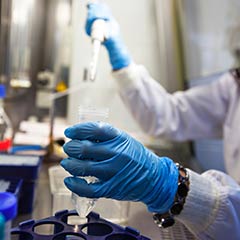 How to Become
How to Become
Even if you’re familiar with some of the different careers in forensics, you may not know the specific paths that lead to them, or the options and decision points that present themselves along the way. So, we’ve carved out a section of our blog to provide very detailed, step-by-step, descriptions of how to become everything from a forensic accountant to a forensic psychologist. Like many career paths, forensics career paths can be complex and nuanced, and are rarely “one size fits all”, so we’ve attempted to break down the major decision points, and clarify the essential component skills, experiences, and educational qualifications for each path, along with the personality traits, likes and dislikes that might make one career a better fit than another.

How to Become a Forensic Toxicologist – Education & Certification
Forensic toxicologists work in laboratories, often those operated by government agencies or law enforcement, to identify chemicals and compounds that could have contributed to crimes or have other administrative or legal consequences. This can include identifying illicit substances in bodies that may have been the victims of foul play, performing administrative drug testing, or identifying hazardous chemicals in the environment.

How to Become a Forensic Counselor
A forensic counselor’s decisions can drastically alter the course of someone’s life and that’s one of the reasons why rigorous academic and licensure requirements are in place for this profession.

How to Become a Forensic Accountant
While other forensic experts recreate crime scenes by analyzing blood and bullets, a certified forensic accountant uses analysis and attention to detail to track down financial criminals. A forensic accountant investigates legal documents and financial statements in order to find criminal or other illicit activity.
How to Become a Hacker (and More): A Complete Cybersecurity Career Guide
Modern hackers, in the purest sense, generally fall into two categories: the black hat hackers who use their skills for profit and malice, and the white hat hackers who work against them. What they have in common is a strong understanding of cybersecurity and a growing influence on modern society. President Biden has made cybersecurity a top priority, and both businesses and government organizations are scrambling to recruit whitehat hackers to bolster their cybersecurity assets.



